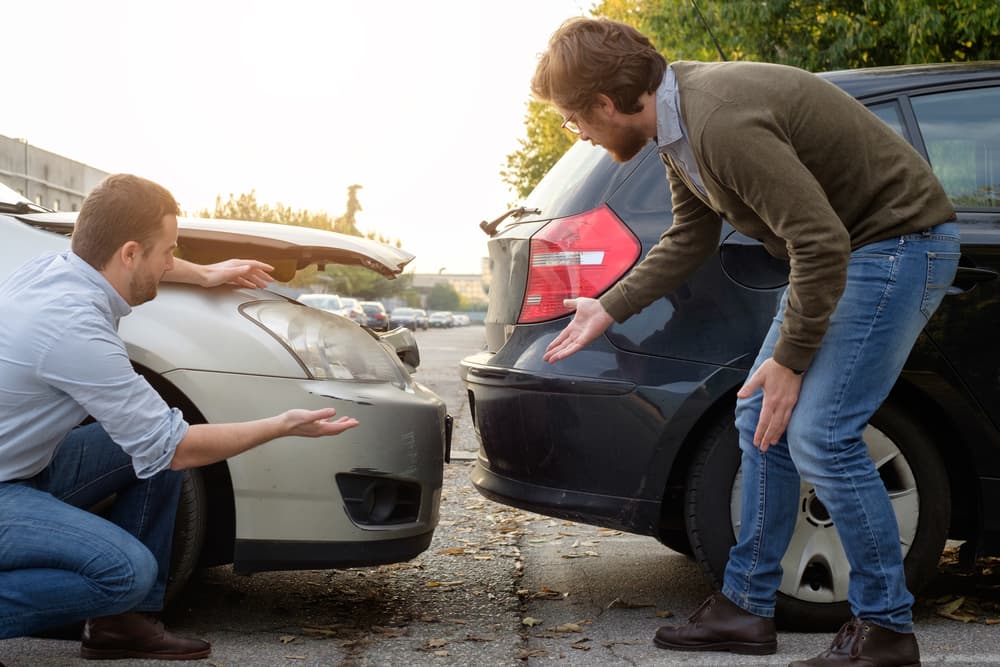Who Pays for Rear-End Collisions?

A rear-end collision can cause serious injuries to all involved parties. If such an accident harmed you, you may deserve compensation.
Understanding who pays for rear-end collisions is key to building a convincing case and acquiring fair compensation. An Indianapolis car accident lawyer can perform research, investigate, and determine where the blame belongs.
Understanding Rear-End Collisions
A rear-end collision occurs when one vehicle strikes the vehicle in front of it from behind. It is one of the most common car accidents, and it can result in significant property damage, injuries, and even fatalities.
Rear-end collisions make up 17.9 percent of all motor vehicle accidents. They lead to a large number of fatalities on U.S. roads.
A court will often blame the vehicle at the rear of the collision for failing to maintain a safe distance or react in time to avoid the collision. The front vehicle, however, could also bear responsibility.
Common Causes of Rear-End Collisions
The most common causes of rear-end collision include:
Distracted Driving
With the increase in the use of smartphones and other electronic devices, distracted driving has become a significant cause of rear-end collisions. When drivers divert their attention from the road to send a text, make a phone call, or engage in other distracting activities, they may not notice the vehicle in front slowing down or stopping.
Distracted driving could also cause a driver in front of another vehicle to not notice the car behind and back into it.
Impaired Driving
Operating a vehicle under the influence of alcohol, drugs, or certain medications can impair a driver’s judgment, reaction time, and coordination. Impaired drivers may fail to act reasonably.
Mechanical Failures
Faulty brakes, worn-out tires, or other mechanical failures can contribute to rear-end collisions. If a driver fails to care for the vehicle according to manufacturer instructions, they may not stop or slow down enough to avoid a collision.
Who Is at Fault in a Rear-End Collision?
In certain circumstances, parties other than the driver of the rear vehicle may bear responsibility.
The Driver of the Front Vehicle
The general rule is that the driver in the rear must maintain a safe following distance and react promptly to avoid a collision.
In some situations, however, the driver of the front vehicle bears liability, including:
- Sudden and unpredictable stops: If the driver of the front vehicle stops suddenly and unexpectedly, such as abruptly slamming on the brakes for no apparent cause, they may cause the collision.
- Faulty brake lights: If the brake lights of the vehicle in front don’t function properly, making it difficult for a driver behind to anticipate braking, the driver of the front vehicle may cause the crash.
- Sudden maneuvers: If a car cuts in front of your vehicle suddenly and causes you to crash, the front driver can cause the accident.
- Stopping on a highway: If a driver stops in a highway lane rather than moves to the curb, the front driver can cause the crash.
If you were in the rear vehicle in a rear-end collision, you may recover compensation. An attorney can collect evidence and investigate the collision to identify the party at fault.
The Driver of the Rear Vehicle
Drivers have a legal duty to maintain a safe distance from the vehicle in front of them and to react promptly to changes in traffic conditions, making the rear driver at fault for most rear-end crashes.
Tailgating, distracted driving, and driving under the influence cause many rear-end accidents. If the accident occurred because the driver of the rear vehicle acted negligently, you can hold them at fault for the crash.
Third-Party or Weather Conditions
In some rear-end collisions, third parties or adverse weather conditions may contribute to the accident:
- Other traffic participants: If a third party, such as a pedestrian or a cyclist, suddenly enters the roadway and causes the driver of the front vehicle to stop abruptly, they may share liability for the collision.
- Driving badly in adverse weather: Poor weather, such as rain or fog, can make stopping or maneuvering a vehicle more difficult. Driving inappropriately for the weather accounts for about 21 percent of traffic accidents.
- Poor road maintenance: If the absence of proper road signs, potholes, or other maintenance issues contributed to the crash, you can hold the government entity liable for the crash.
Determining fault in a rear-end collision requires a thorough investigation of the circumstances and gathering evidence. An experienced personal injury attorney can evaluate the factors involved and establish liability. A lawyer can pursue fair compensation for the injuries and damages that you sustained from a rear-end collision.
Navigating a Rear-End Collision Claim

Once your attorney determines who should pay for the rear-end collision, they can start gathering evidence to support your claim for damages and present it to the relevant party. They can then negotiate with the insurance company or the responsible party to get the compensation you deserve. If negotiations don’t work out, your lawyer can take the case to trial and fight for your rights in front of a judge or jury.
No matter how straightforward or complex your rear-end collision, a personal injury attorney can protect your rights.

